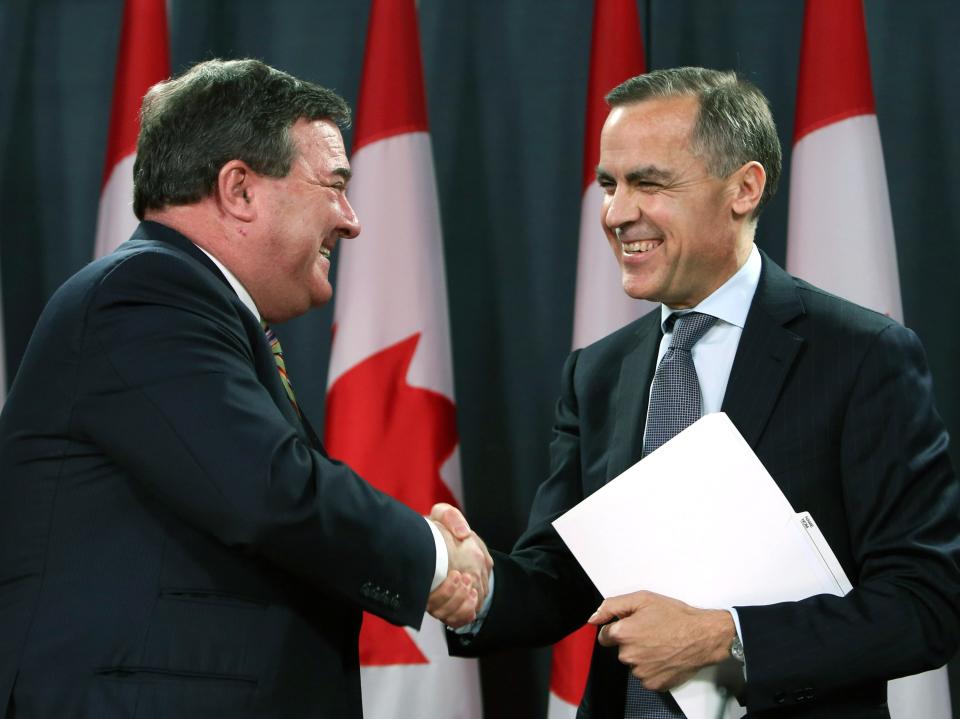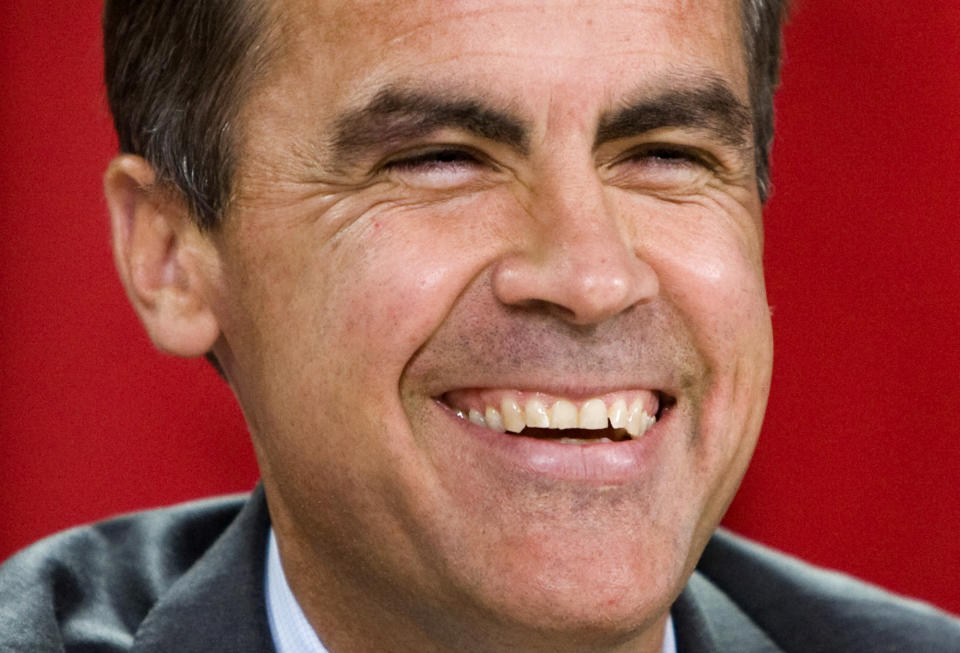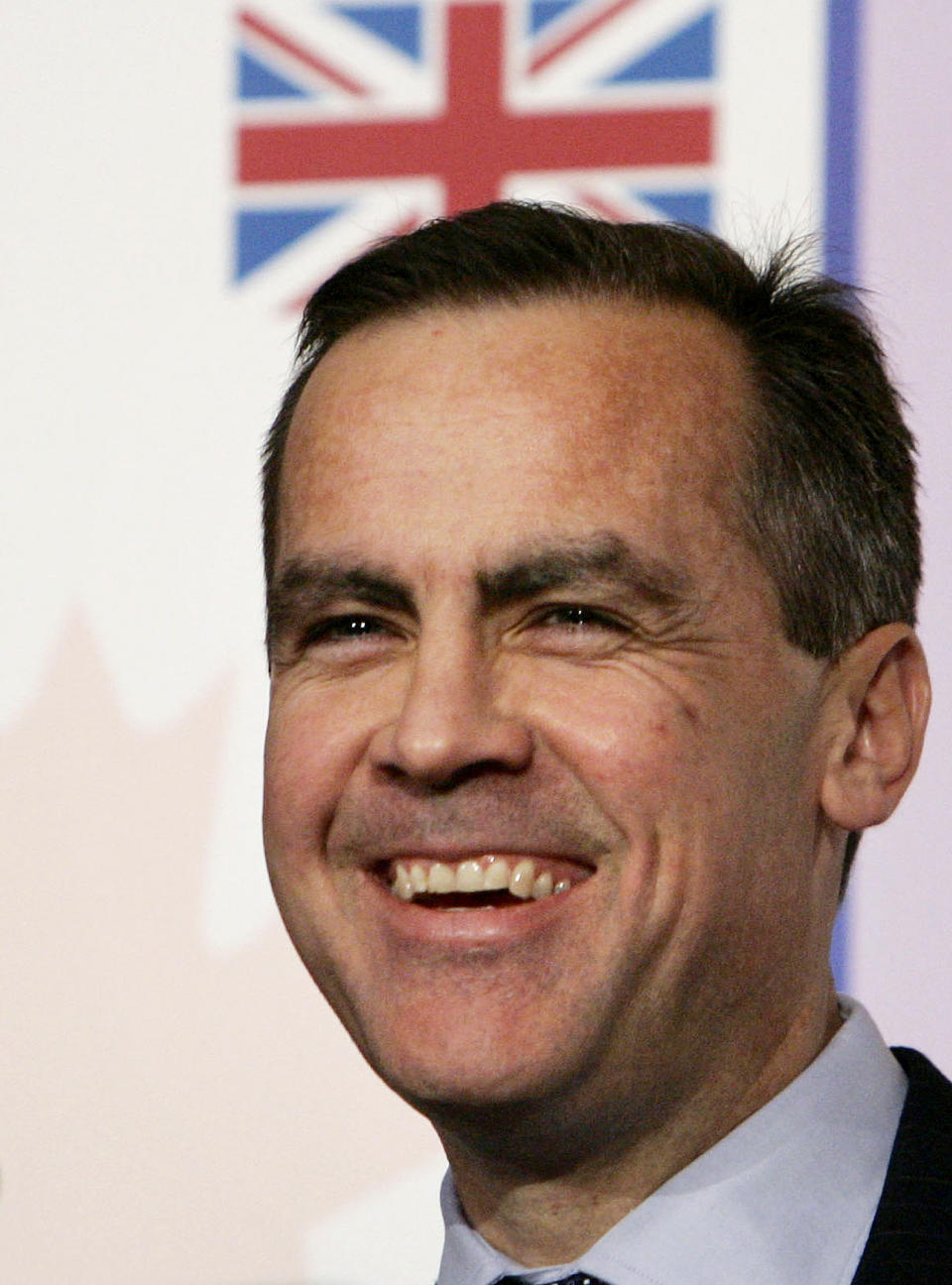From Canada, a tough economist for Bank of England
TORONTO (AP) — Naming the first foreigner to serve as governor of the Bank of England since it was founded in 1694 might have been expected to cause a fuss. Yet the appointment of Canadian Mark Carney has won bipartisan praise in Britain.
That's because few people in the world have Carney's qualifications.
The Bank of Canada governor is a highly-educated economist with Wall Street experience who is widely credited with helping Canada dodge the worst of the global economic crisis. He gained a reputation along the way as a tough regulator who stood up to JPMorgan Chase CEO Jamie Dimon.
Moving to the top job at Canada's central bank just before the global financial crisis hit in 2008, Carney slashed interest rates to historic lows and was the first central banker to commit to keeping them at a historic-low level for a definite time, a step the U.S. Federal Reserve would follow.
Canada was spared a mortgage meltdown or subprime lending crisis, and its banks, more regulated and less leveraged than Europe's, are rated among the world's soundest. Britain, however, has endured a decade of economic turbulence, and seemed ready for a foreigner to shake up its central bank.
Besides his job as a central banker, Carney, 47, also heads the G-20's Financial Stability Board, a global supervisor of regulatory changes in the financial system. Carney's championing of stiffer regulation was highlighted in a run-in last year with Dimon. The Bank of Canada chief stood his ground in a closed-door meeting in Washington when Dimon directed a diatribe toward Carney over what the JPMorgan Chase chief called "anti-American" global reforms against banks.
"When there was pushback on the regulatory front he dug in his heels and made his case that, no, we shouldn't slow down, we should be pushing forward," said Craig Alexander, a Toronto-Dominion Bank economist.
"This is the sort of thing that makes him qualified to take on the challenge of the Bank of England because he's going to be materially involved in shaping regulatory reform of the financial system in London," he added. "So the fact that he would stand up for the regulatory regime is exactly the characteristic one would be looking for."
The transnational appointment is a mark of today's globalized world, while also echoing a past in which Canada was a part of the British Empire.
Like other central bankers, Carney is a former Goldman Sachs executive. He worked for 13 years in London, Tokyo, New York and Toronto, before being appointed deputy governor of the Bank of Canada in 2003. He has both financial industry and government regulatory credentials.
"He looks and sounds the part," CIBC World Markets economist Avery Shenfeld said. "He has the academic background, the gravitas and the experience to withstand the fray of central banking in a city like London."
Carney, from the remote northern town of Fort Smith in the Northwest Territories, gained a bachelor's degree in economics from Harvard University in 1988, and master's and doctoral degrees in economics from Oxford University. Like many Canadians, he played ice hockey, serving as a backup goalie for Harvard.
He lived in London for a decade and his wife and children are dual nationals. British Treasury chief George Osborne, announcing the surprise choice to the House of Commons on Monday, said Carney will apply for British citizenship. He takes up the new position July 1, succeeding Mervyn King, who has headed the bank since 2003.
Before Monday's announcement the frontrunner for the job was widely seen to be Paul Tucker, the bank's deputy governor. But Tucker was likely bypassed because of his embroilment in the Libor-fixing scandal. In July, he was forced to testify to lawmakers after emails emerged showing he had communicated with Bob Diamond, the ex-chief of Barclays, over the setting of the inter-bank interest rate.
Carney's appointment won bipartisan praise in Britain. Ed Balls, the opposition Labour Party's economics spokesman, called it "a good choice," while Osborne said Carney was "quite simply the best, most experienced and most qualified person in the world to do the job."
Although Osborne said it was the first time the Treasury advertised the governor's job, Carney said he hadn't applied. "I didn't apply as part of the formal process to the position. These discussions really only intensified in the last two weeks," Carney said at a news conference in Ottawa.
Carney said he initially turned down the job but British officials kept after him. He said he changed his mind because his term as governor of the Bank of Canada was ending soon, the London job was a big opportunity and the fate of the British economy was critical.
"It's very important for the global economy that the U.K. does well, that it succeeds in this rebalancing of their economy, that the reform of the British financial system is completed, " he said.
Carney said he would take the job for five years instead of the usual eight, and many Canadians are speculating that Carney may return to Canada to run for prime minister. The opposition Liberal Party of Canada had eagerly courted him, but Carney said this month he would remain a central banker for some time.
___
Associated Press writer Sylvia Hui contributed from London.





